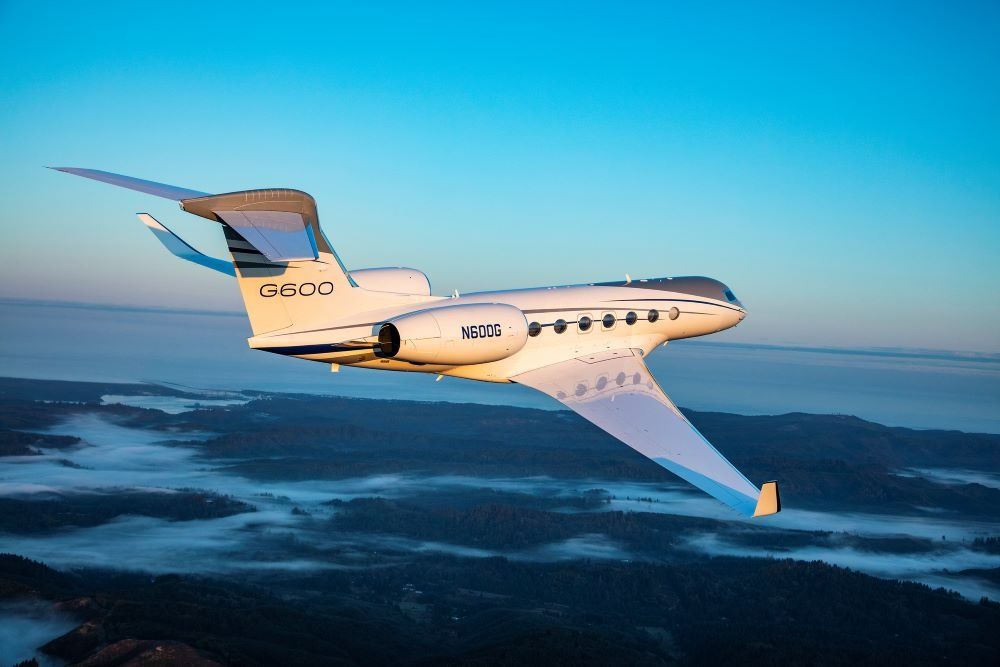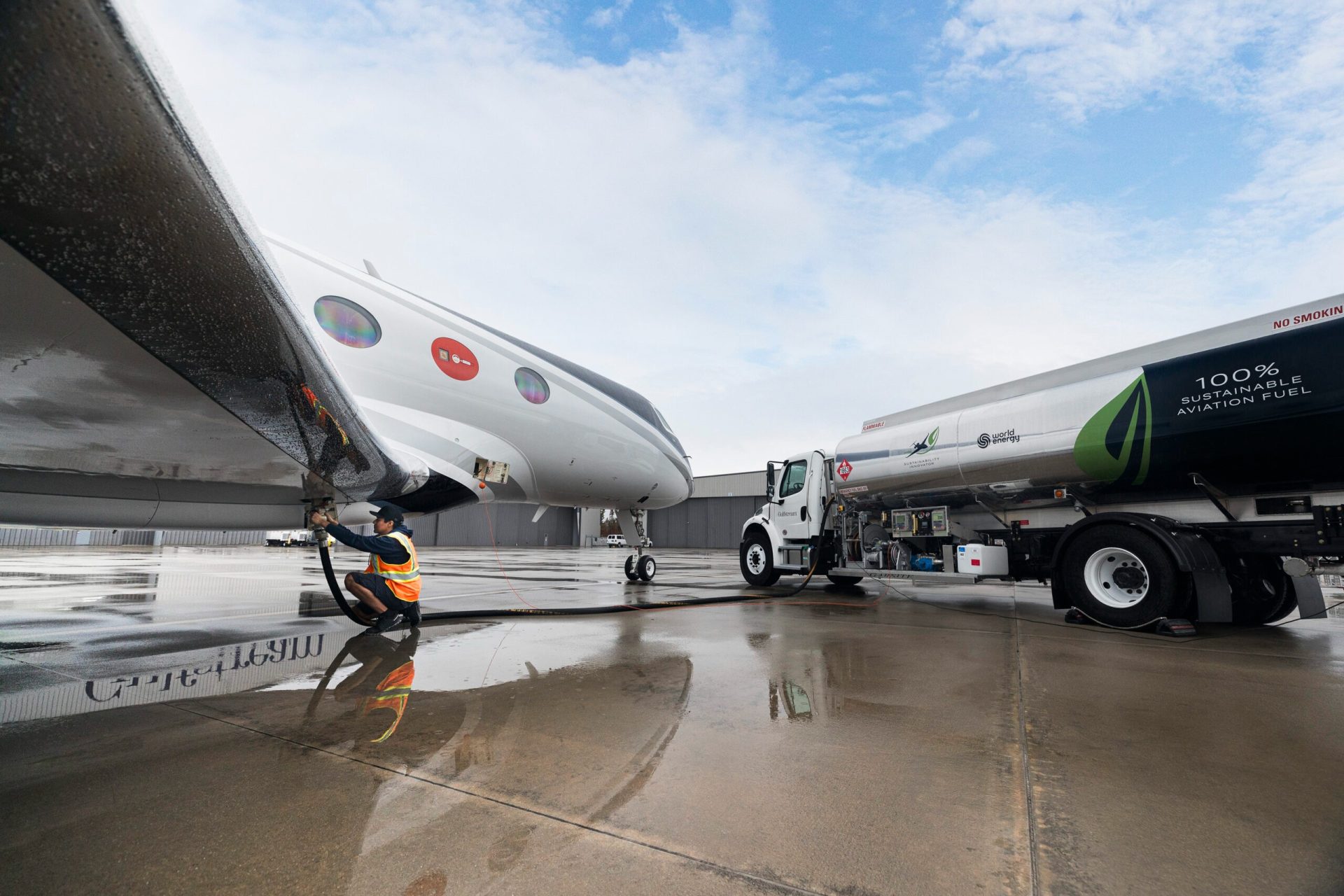Gulfstream Aerospace has flown into history as one of its G600 aircraft completed the world’s first transatlantic flight burning 100% Sustainable Aviation Fuel (SAF) from Savannah, Georgia, to Farnborough, England, in six hours and 56 minutes.

With so much aerospace industry attention focused on ways to attain net zero carbon dioxide emissions by 2050, it was inevitable that something of a race would ensue to carry off the first 100% SAF-fueled transatlantic flight. Companies like Virgin Atlantic and Rolls-Royce have thrown their respective hats into the ring, but the prize has been won by a Gulfstream business jet powered by two Pratt & Whitney PW815GA engines.
SAF is designed to cut aviation carbon emissions by using sources that rely much less on fossil fuels – and this doesn’t just mean secondhand chip pan oil. These sources include maize; seed oils; algae; animal fats, oils, greases; farm residues; forestry residues; wood mill residues; liquid and solid municipal wastes; and crops grown for energy use.

According to Gulfstream, SAF has the potential to reduce net carbon emissions by 70% and also to reduce sulfur emissions. The data from the November 19, 2023 transatlantic flight will be used to not only persuade the US FAA to make 100% SAF legal for general use, but also to improve the fuel to further reduce emissions and to improve performance under cold temperatures for extended flights.

“Gulfstream is innovating for a sustainable future,” said Mark Burns, president, Gulfstream. “One of the keys to reaching business aviation’s long-term decarbonization goals is the broad use of SAF in place of fossil-based jet fuel. The completion of this world-class flight helps to advance business aviation’s overarching sustainability mission and create positive environmental impacts for future generations.”
Source: Gulfstream





